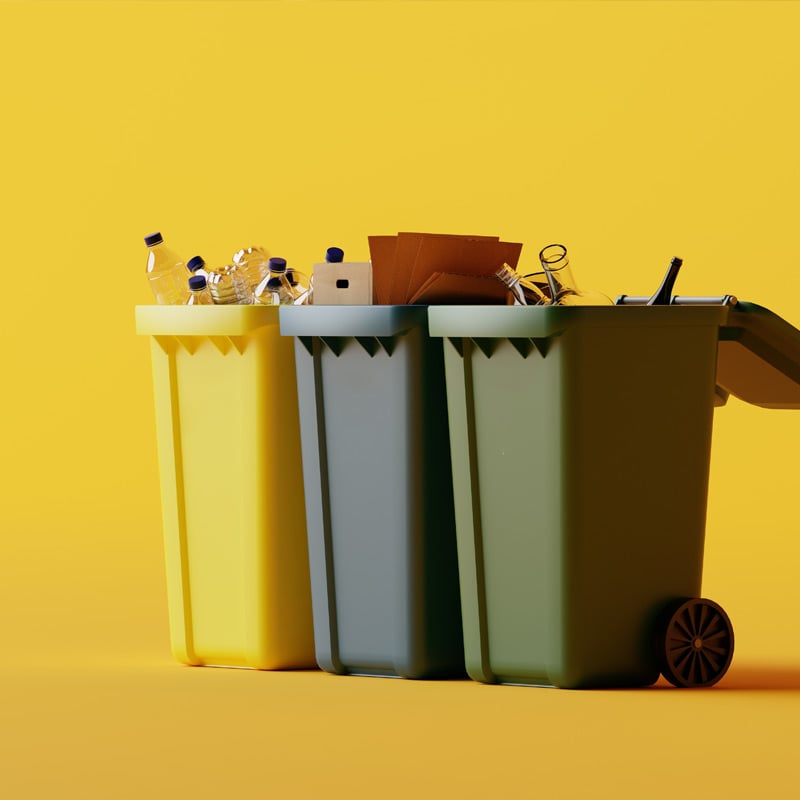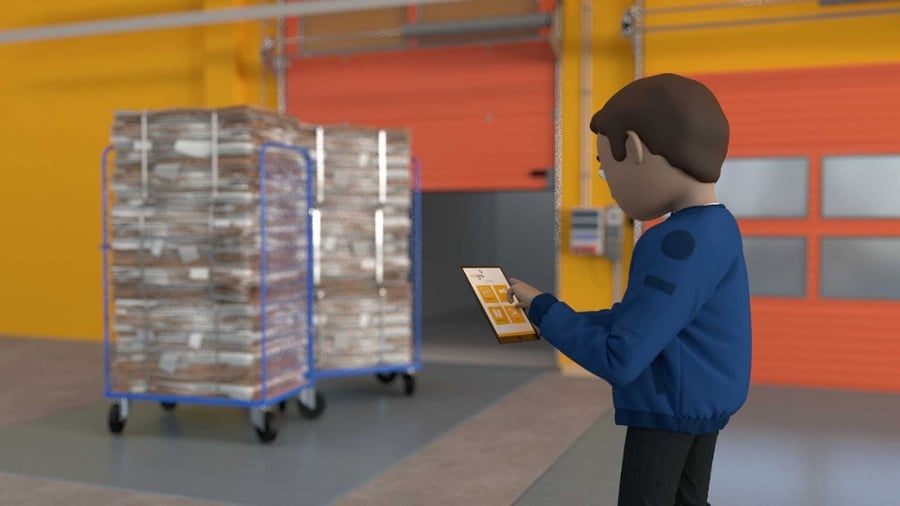Materials, energy and raw materials are becoming increasingly scarce and expensive. Efficient use and reuse of resources is therefore an important condition for achieving a circular economy. Therefore, the Flemish Regulation on the Sustainable Management of Material Circuits and Waste, Vlarema for short, requires companies and organizations in Flanders to sort industrial waste according to established waste streams. As of July 1, 2024, Vlarema 9's new guidelines are in effect. In this article, you will discover the main changes to the regulations.
Vlarema 9 in short
In December 2023, Vlarema 9's new guidelines were approved. With the adaptation of the regulations, Flanders is taking an important step forward in making materials management more sustainable.
The changes to Vlarema 9 should lead to:
- Reduction of waste
- Better management of raw materials
- Reduction of plastic pollution
The existing list of 24 waste streams has been expanded to 29 waste streams as of July 1, 2024. As of Jan. 1, 2027, the list will even include 32 waste streams. The addition of these new streams mainly affects the processing and management of construction and demolition waste.
This changes with Vlarema 9
Let us now zoom in on the main additions of Vlarema 9.
1. Ban on single-use plastics
Within Vlarema 9, there is a ban on plastic products made for single use. This might include plates, cutlery, straws and cotton buds, but the new regulations go a step further. For example, products made of oxo-biodegradable plastic, Styrofoam food packaging and plastic packaging for fruits and vegetables are among the products covered by the new ban.
Sustainable alternatives must be used instead, such as reusable plates and cutlery, paper straws and compostable cotton buds. In principle, this ban goes into effect July 14, 2024, but some products have an extension until 2026. Plastic packaging for fruits and vegetables is one example.
2. More source sorting of construction waste
As mentioned above, an expansion of the list of materials requiring separate collection is effective July 1: from 24 to 29 waste streams. Characteristic of construction and demolition waste, the new waste streams are:
- Non tarred asphalt rubble
- Foundation material
- Contaminated fractions of construction and demolition waste
- Aerated concrete
- Plasterboard and gypsum blocks
Thus, in addition to copper, lead and zinc, contractors must collect these waste streams of construction and demolition waste separately from July 1, 2024. There are several tools to optimize source sorting on a job site. Consider, for example, clear signage.
3. New rules for mixed construction and demolition waste.
As of July 1, 2024, mixed construction and demolition waste may no longer be deposited in a landfill. As a contractor, you must have this waste sorted and reprocessed by an authorized processor. Specialized companies offer this service. You can also choose to separate construction and demolition waste manually or with a sorting machine.
4. New rules for commodity declarations
Vlarema 9 has new rules around raw material declarations. Such a declaration contains detailed information about the nature, composition and quantity of the waste. It establishes where the waste was produced and whether it is treated, recycled or disposed of.
Vlarema 9 sets stricter requirements for the information companies must provide on the production and treatment of waste. This should improve the transparency and traceability of waste streams.
5. New demolition certificate
As of 2025, a demolition certificate is required for all demolition work in Flanders. This contains detailed information about the object to be demolished. It also includes an inventory of the waste streams released and their processing. In this way, the demolition certificate contributes to more transparency and control over waste streams.
When will Vlarema 9 take effect?
Most changes to Vlarema 9 went into effect in the first half of 2024. Still, there are some exceptions:
- The new rules for mixed construction and demolition waste are deferred until Jan. 1, 2025. As a contractor, have you already started a project before 2025? Then the old rules continue to apply to the waste generated within this project.
- Did you purchase plastic rolling waste containers, compost drums or compost bins before Jan. 1, 2024? Then you may continue to use them for up to 12 months after the ban takes effect. Specifically, they must be removed from your facility no later than Jan. 1, 2025.
The importance of Vlarema 9
Why is it so important for you as a company to comply with the new amendments to the Flemish Regulation on Sustainable Management of Material Cycles and Waste? We list that for you.
- First of all, Vlarema 9 encourages a circular economy. By responding to this, you exploit new opportunities as a company. You enter new markets and thus strengthen your competitive position.
- Vlarema 9 also makes a useful contribution to innovation and product development. Thanks to the commitment to sustainable materials and methods of waste processing, you as a company can distinguish yourself from competitors.
- Finally, thanks to Vlarema 9, your company benefits from a reduction in waste costs. Proper separation and processing of waste streams produces new valuable products or materials. This is done, for example, through recycling, reuse, composting or energy generation. Thus, you significantly reduce your company's waste costs.
Milgro and Vlarema
As a technology company, Milgro focuses on managing natural capital. With comprehensive waste management solutions, we facilitate the transition to a circular economy in which raw materials are continuously reused. In this way, we prevent the creation of waste streams.
In doing so, we emphasize transparency and traceability in the waste chain. An important condition for you as a company to meet Vlarema 9's stricter requirements around raw materials declarations and origin determination of waste streams.
To meet the requirements of Vlarema 9, Milgro offers concrete solutions, such as:
- Digital waste management: a convenient, digital system that allows us to map all the waste streams in your company. Discover the cost and impact of each waste stream.
- Network of approved processors: we have a large network of approved processors for Vlarema 9 waste streams.
- Reporting and analysis: you will receive detailed reports and insights. This gives you insight into waste streams and identifies optimization opportunities, both at euro and eco level.
Stay informed
Stay up to date on all new developments? Follow us on LinkedIn or Instagram. Or subscribe to the newsletter. Are you curious about what Milgro can do for your operations and waste process? Contact us













